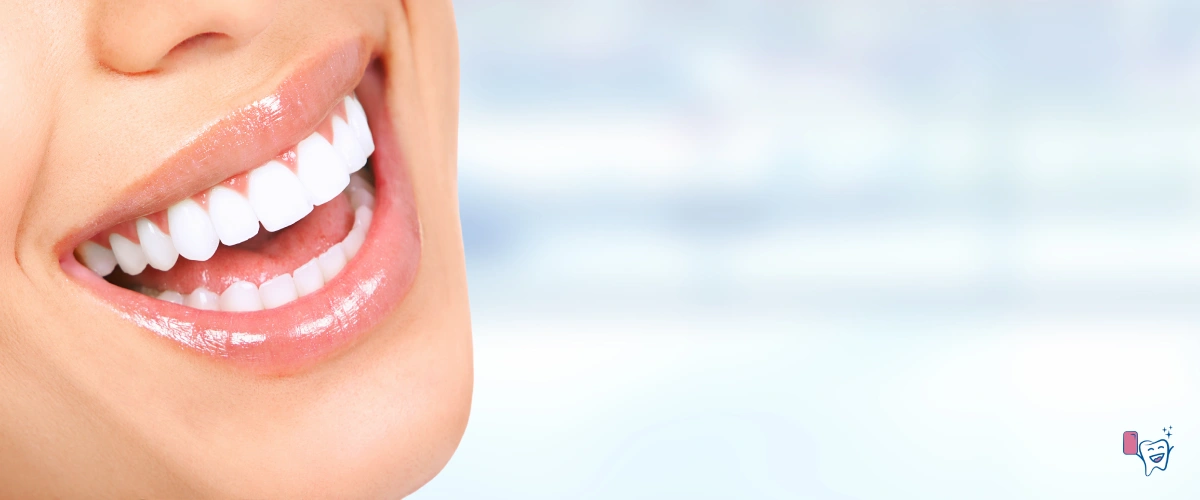Everyone knows that good oral hygiene ensures healthy teeth. However, sometimes we get so busy in our lives that we miss some essential oral routines. So what happens when you forget to follow the basic rules for healthy teeth? Big symptoms arise when you are not on the right track of dental hygiene. Before finding the right track, let’s find out if your path is right or wrong.
| How to check if your teeth are healthy? | Brush your teeth twice a day | Interdental Brush or Dental Floss | Quit Smoking | The Most Overlooked Rule: Chew The Gums | Keep your teeth clean throughout the day |
5 Warning Signs of Unhealthy Teeth
Do you think that you follow the basic rules of healthy teeth? Do you think you have healthy teeth? Here is a checklist for finding out if your teeth are healthy or not.
If you notice any one of these 5 signs, your teeth are crying out for help and you need to be attentive to the symptoms.
- You suffer from bad breath or a bad taste in the mouth.
- You have tooth sensitivity. This means that when you drink cold water or ice cream, you feel a burning sensation in your gums.
- Your mouth is dry most of the time.
- Your teeth become stained or discoloured. Yellowness in your teeth is increasing.
- Bleeding happens when you are flossing or brushing your teeth.
If you are facing these symptoms, then there is a high probability that you are not taking care of your teeth properly. When these symptoms go untreated, this can lead to bigger issues. Erinne Kennedy, director of predoctoral education at Kansas City University College of Dental Medicine, puts it in a better way [1]:
“Abscesses that are unresolved can cause substantial pain and can even become life-threatening.”
Never ignore these minor symptoms. These symptoms mean that you need to follow the rules for healthy teeth given below:
7 Rules for Healthy Teeth
Here are some of the rules and practices that can help you in preserving your oral health. These rules are the basics you need for healthy teeth. Incorporate these steps into your daily hygiene routine and you will be better protected against the minor symptoms described above.
Rule 1: Brush your teeth twice a day
Brushing your teeth twice a day is the foundation of having healthy teeth and gums. That’s why it is ranked as Rule#1 for healthy teeth in our ranking. It serves as the most basic routine that we have incorporated into our routines. This ritual is followed almost religiously in our customs and there is a strong medical reason behind that.
Fluoride toothpaste and soft brushes help to remove bacteria and stains off your teeth and tongue. The primary function of brushing is to remove the plaque formation on the teeth. Plaque is formed naturally on the teeth due to the residues of food particles, bacteria and saliva. Brushing removes this plaque and significantly decreases the chances of occurrence of periodontal disease and dental caries [2].
Take time while brushing your teeth and brush gently. Careless brushing can be as detrimental as no brushing at all.
Rule 2: Interdental Brush or Dental Floss for Healthy Teeth
Most people consider it an alternative to tooth cleaning, performed instead of regular brushing. However, this is a crucial mistake. Interdental brush, dental floss, and a toothbrush go hand in hand.
The interdental brush or dental floss complements tooth cleaning by removing food particles and impurities from the interdental spaces, where a toothbrush cannot easily reach. People who use an interdental brush or dental floss at least once a day generally have a lower likelihood of gum and tooth diseases. Regular use of interdental brushes or dental floss leads to a lower incidence of periodontal diseases, a lower occurrence of tooth decay, and the loss of fewer teeth over a period of 5 years [3]. Using an interdental brush or dental floss is therefore a necessity if you want to maintain oral hygiene, especially as you age.
Rule 3: Quit Smoking
Smoking can have an overall bad impact on your health including your dental health. Cigarettes contain chemicals that can expose your gums to many infections and diseases. However, by quitting smoke, you can reverse the effects of smoking on your teeth. These are the habits that we all have incorporated into our routines. We all know about these. It is no new knowledge.
However, there is one thing that we all often overlook.
Rule 4: Chew The Gums
Most Simplest Yet Effective Rule for Healthy Teeth
The most convenient and easiest way of boosting your oral health is chewing gum. However, most often we ignore this simple option.
Because of the excessive branding of sugar-based gums, people consider chewing gum as an unhealthy snack. They do not know that the right chewing gum can actually help us in achieving healthy teeth. They cannot understand “Why Chewing Gum” is used for health purposes. Chewing gum has numerous health benefits. It not only helps in getting rid of yellow teeth but also cures dry mouth conditions.
If you are still ignoring this convenience, do it at your own loss!
Keep your teeth clean throughout the day
Do you have long work hours and are worried about your bad breath?
Sometimes we are in extraordinary situations and it is very difficult to follow the oral routine. Maybe you are putting in long hours at work and forgot to put your brush in your purse. Now you have a meeting and you are worried about your bad breath?
This happens to all of us. We might be in a different situation but we feel the same way.
Here is the instant solution. Chewing gum.
You do not have to take my word for it. Just take a look at the facts:
In medical terms, bad breath is called halitosis. It is a very common condition which affects 1-in-3 people worldwide, which makes up 30% of the population, according to NIH [4]. The two most common causes of bad breath are dryness and the presence of harmful bacteria in the mouth. Chewing sugar-free gums helps you with both of the causes. It increases saliva production and also cleans out bad bacteria. It removes the debris that sticks in the corners of teeth.
What are you waiting for? Grab a Gum!
Where you are, what you are doing, does not matter!
References
[1] Erinne Kennedy, director of predoctoral education at Kansas City University College of Dental Medicine – https://www.aarp.org/health/conditions-treatments/info-2022/signs-of-tooth-decay.html.
[2] The effect of habitual tooth cleansing on the occurrence of periodontal disease and dental caries – https://pubmed.ncbi.nlm.nih.gov/4396818/.
[3] Flossing Is Associated with Improved Oral Health in Older Adults – https://pubmed.ncbi.nlm.nih.gov/32321349/.
[4] according to the National Institute of Health (NIH) – globally 30% of the world population suffers from halitosis – https://link.springer.com/article/10.1007/s00784-017-2164-5.


